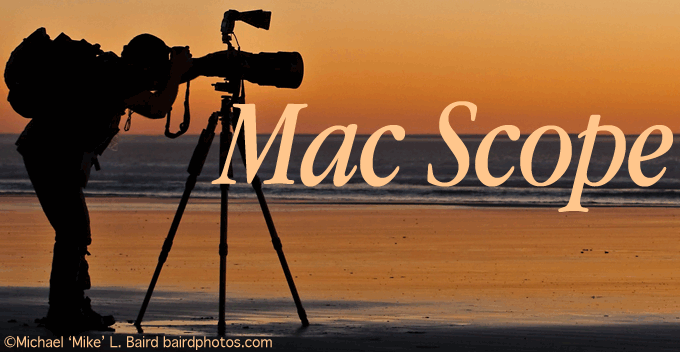2001: Apple seems to be on a roll these days. Knock your socks off hardware, a new assault on the education market, accolades for their software efforts – and the list goes on.

                  |
I can honestly say that this might be Apple’s last big chance to press forward and gain new users.
I think Apple can gain new users easily enough with its product offerings, but at this point, they may be getting a huge helping hand from their old rival (now the ugly aunt that they must pucker up and kiss at family reunions), Microsoft.
Microsoft Control
Microsoft, of course, owns the majority of the desktop OS market. Over 90% of the world’s computers run some version of Windows. Unless you’ve had your head stuck in the sand over the last year, you know Microsoft is prepping its latest OS, Windows XP.
Windows XP is Microsoft’s grand vision to tie the OS (XP) to the software run on it (Office, Windows Media Player) to the information on its users (credit cards, surfing habits, buying habits) to a giant database to connect and track it all (HailStorm).
The above explanation is, of course, a generalization. I think, however, it captures the essence of Microsoft’s new strategy.
The problem that Microsoft will run into is that this new vision takes unprecedented control over the user’s data and desktop.
For example, recent reports indicate that Windows Media Player will not play MP3s. There are millions of MP3s floating around hard drives all over the world. Essentially, Microsoft removes the user’s ability to play a vast store of music that each user has painstakingly accumulated. Of course, third-party MP3 players should work, but many users simply use what comes with the system.
Arguments aside, new users will likely use the WMA format supplied by Microsoft. They will also likely rip songs in WMA format (because you can’t rip MP3s with the software that ships with XP, and installing a third-party encoder may be more trouble than it’s worth for new users). Let’s see now, free software on the desktop that’s convenient and accessible. Air supply cutoff anyone?
This little detail in itself may not turn users off. Having personal data stored elsewhere and controlled by Microsoft might.
Enter Hailstorm. Enter your user data and vital stats (which users are obviously too stupid to be trusted with), and Microsoft will keep it safe for you. Sound a little ominous, trusting personal data to a corporation whose main drive (like all corporations) is profit, not consumer well-being?
Enter Passport, now integrated with Internet Explorer 6. Passport essentially tracks your surfing habits as you cruise from site to site. Correction – it only tracks users from Passport-sanctioned site to Passport-sanctioned site. In a nutshell, Passport sets a cookie that “remembers” where you were previously on the Passport network and measures your time and surfing habits. This is valuable information for marketing companies looking to pitch products.
Microsoft can dictate which music format you can use, how your information is stored and shared, and track your surfing habits.
Big Brother anyone?
Apple’s Opportunity
So how does Apple benefit from all of this? Simple – Apple can position itself as an alternative to the all seeing, all knowing, all controlling Microsoft.
My theory is this: Microsoft thinks it has its users by the throat. Its market share is so huge that it thinks it can now dictate to consumers its agenda, instead of consumers telling Microsoft what they want. This, I think, is a dangerous game.
Many users value their privacy and computing independence. They want their information to remain in their control (which a Microsoft rep will tell you is the case with Hailstorm). They also want to remain anonymous on the Web and part with personal surfing information only if they choose.
Positioned correctly, Apple (and alternative OSes) could capitalize on the “We know what’s best for you,” attitude in Redmond.
I think the time is coming when a remake of 1984 would be in order. As Microsoft slowly but surely centralizes its products and removes control from the user, a flying hammer from Apple might just be the remedy for a bad case of Microsoftitis.

